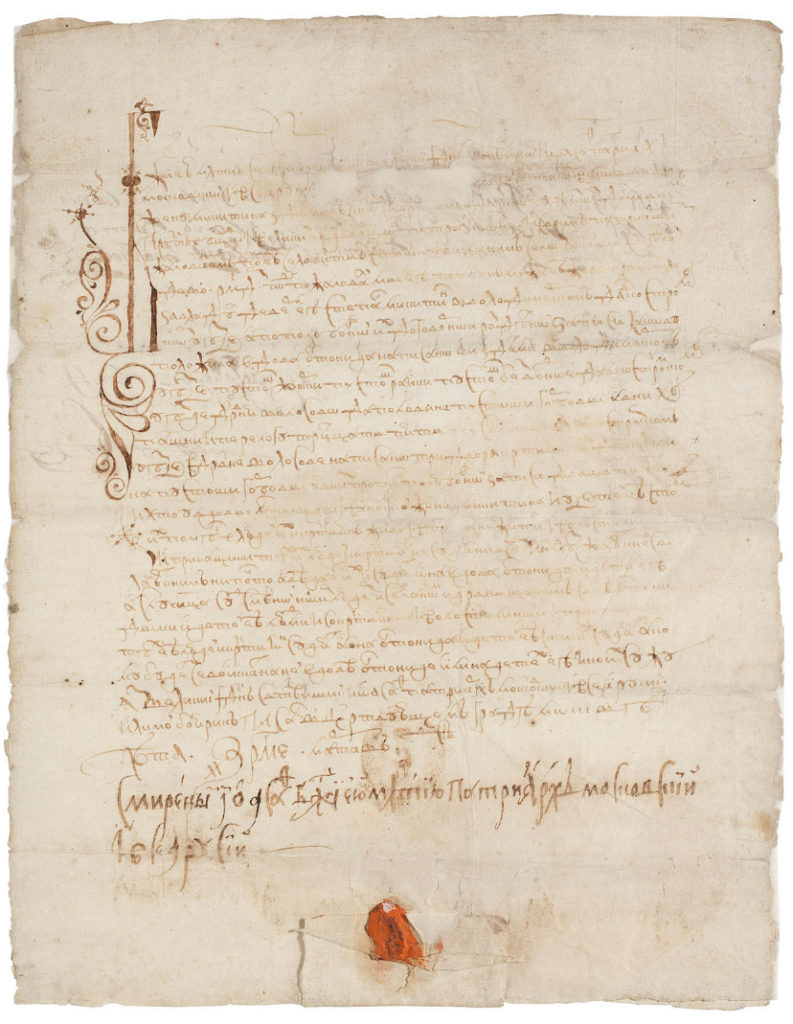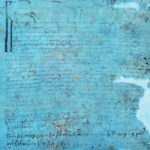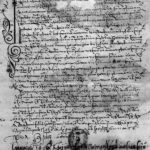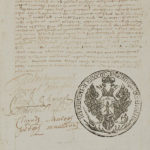The Moscow Kremlin Museums received three valuable documents of the 17th and 18th centuries.
The Moscow Kremlin Museums received three valuable documents of the 17th and 18th centuries from the philanthropist Ulvi Kasimov as a gift.
 Two rare «letters» written on behalf of the first tsar of the Romanov dynasty, Mikhail. The first was written by his father Filaret, the Moscow Patriarch (1619-1633), whom Boris Godunov forced along with his wife to take the monastic vows and banished to the north. This letter grants the position of "landowner" to Stepan Mikitin, probably the former oprichnik of Ivan the Terrible (various members of this family were known to be registered as such). The land was lo cated in Kostroma uyezd, an important commercial area on the banks of the Volga, around the centre of the city of the same name that was then a part of the Moscow Principality.
The second document is unusual since it evidences of the transfer of land to the descendants of Stepan by inheritance instead of its automatic return to the state after his death. During the Time of Troubles, starting from the reign of Boris Godunov and until the election of Mikhail Romanov, the land was granted by various authorities without any system, the countryside was in complete disorder, and the population did not have any leader. Both patriarchs exercised sufficient power to establish order in this situation. The tenancy and control of land and peasants comprised the key issues during that period.
Two rare «letters» written on behalf of the first tsar of the Romanov dynasty, Mikhail. The first was written by his father Filaret, the Moscow Patriarch (1619-1633), whom Boris Godunov forced along with his wife to take the monastic vows and banished to the north. This letter grants the position of "landowner" to Stepan Mikitin, probably the former oprichnik of Ivan the Terrible (various members of this family were known to be registered as such). The land was lo cated in Kostroma uyezd, an important commercial area on the banks of the Volga, around the centre of the city of the same name that was then a part of the Moscow Principality.
The second document is unusual since it evidences of the transfer of land to the descendants of Stepan by inheritance instead of its automatic return to the state after his death. During the Time of Troubles, starting from the reign of Boris Godunov and until the election of Mikhail Romanov, the land was granted by various authorities without any system, the countryside was in complete disorder, and the population did not have any leader. Both patriarchs exercised sufficient power to establish order in this situation. The tenancy and control of land and peasants comprised the key issues during that period.
Three documents in Russian: (i) a letter with the signature «The Humble Filaret, by the Grace of God, Patriarch of Moscow and All Russia», granting land in Kostroma to Stepan Semenovich Mikitin; 27 lines in cursive writing with common abbreviations beginning with big capital “B”; reverse side - with a clerical signature dated January 12, 1761, 1 page, damages, breaks with loss of text, spots and faded segments, folio (485 x 320 mm.), Moscow, March 1622;
(ii) a letter with the signature “Humble Josaphat, by the grace of God, Patriarch of Moscow and All Russia”, granting the right to Ivan Mikitin to continue using the estate that confirms granting of such a right a year earlier to Antonina Ilyina Mikitina, the widow of his grandfather Stepan; 25 lines in cursive writing with common abbreviations, with big capital “B”, decoration of the scroll and remains of the wax seal, 1 page, damages, breaks with loss of text, spots, discoloured segments, folio (405 x 310 mm). March 1637;
(iii) a scribal copy of the "Review of the settlement of Bogoroditsk in the district of the same name in Tula Province" with data on its residents dated September 11, 1781 and signed by various military officials as well as with the official seal of Catherine the Great.
Links to the articles:
- https://www.bonhams.com/auctions/22713/lot/77/
- https://www.kreml.ru/press-room/press-releases/muzei-moskovskogo-kremlya-poluchili-v-dar-tri-tsenneyshikh-dokumenta-xvii-i-xviii-vekov-ot-metsenata-ulvi-kasimova/
- https://www.kreml.ru/friends/events/muzei-moskovskogo-kremlya-poluchili-v-dar-tri-tsenneyshikh-dokumenta-xvii-i-xviii-vekov-ot-metsenata-ulvi-kasimova/
- https://foma.ru/redkie-patriarshie-gramoty-xvii-veka-peredal-meczenat-muzeyam-moskovskogo-kremlya.html
- https://tass.ru/kultura/7414373



